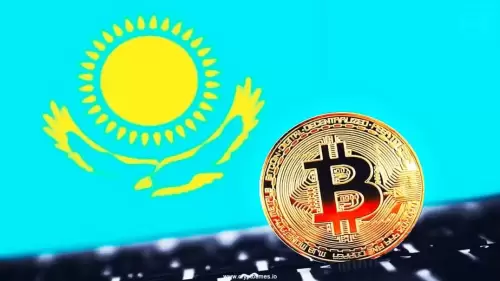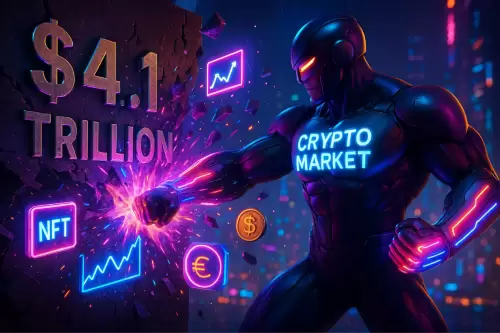 |
|
 |
|
 |
|
 |
|
 |
|
 |
|
 |
|
 |
|
 |
|
 |
|
 |
|
 |
|
 |
|
 |
|
 |
|
Cryptocurrency News Articles
Sandeep Nailwal Officially Takes the CEO Role at Polygon Foundation, Updating the Roadmap
Jun 11, 2025 at 06:01 pm
The new CEO will consolidate control and reorient the team toward AggLayer — Polygon's new cross-chain liquidity protocol

Polygon co-founder Sandeep Nailwal has officially assumed the role of CEO of the Polygon Foundation, consolidating control and pivoting the organization toward its new cross-chain liquidity protocol, AggLayer.
The move, announced Monday, is part of a broader strategic reset for the blockchain network, which is also winding down its zkEVM experiment and shifting focus toward real-world financial assets (RWAs).
"This renewed control marks the beginning of a strategic push for Polygon to reclaim its position at the forefront of Web3," the team stated in a press release.
As chief executive, Nailwal will oversee long-term planning, guide key ecosystem initiatives, and ensure that the foundation — which umbrellas key entities like Polygon Labs — delivers "exponential growth, increased focus and greater value to POL stakers."
In its early days, Polygon’s proof-of-stake sidechain marketed itself as a low-cost, fast alternative to Ethereum, providing users with access to decentralized apps without the burden of high gas fees. It quickly rose to prominence as a go-to Ethereum scaling solution.
But activity has since cooled. Total value locked (TVL) across Polygon networks has fallen to around $1 billion, down nearly 90% from its June 2021 peak of $9.79 billion, according to DefiLlama.
Polygon has also ceded ground to a new wave of Ethereum scaling networks — namely "layer-2 rollups" like Optimism and Arbitrum — which offer similar user experiences but with tighter Ethereum compatibility and more sophisticated security systems.
Polygon's own rollup, zkEVM, ranks just 27th by TVL among layer-2s, according to L2Beat, trailing well behind its newer competitors.
Now, the zkEVM experiment is being phased out. Polygon said it will sunset the zkEVM Mainnet Beta in 2026, citing developer friction, architectural limitations, and sluggish adoption. "To ensure a smooth transition, the sequencer will remain live for the next twelve months and the network will continue to be fully operational," the team noted.
The decision also comes with a key personnel shift: Jordi Baylina, Polygon's zero-knowledge research lead, will be leaving the foundation to spin out his own project, ZisK.
"We wish Jordi all the best in his endeavors and look forward to seeing what ZisK achieves in the years to come," the team stated.
As part of its strategic pivot, Polygon will be doubling down on its flagship PoS sidechain, now targeting RWA integration. The foundation hinted at an "ambitious roadmap" with milestones to transform the chain into a "gigagas" network capable of processing 100,000 transactions per second and securing trillions in tokenized assets.
The move follows a period of heightened scrutiny from the U.S. Securities and Exchange Commission (SEC), which has been investigating several crypto projects, including those that tokenize real-world assets.
In a post on X, Nailwal said Ethereum's "existential crisis" had pushed Polygon to revisit its core identity — returning to a bolder, more nimble, and more decisive "zero-to-one" mentality.
His stated goal: "to deliver greater value to POL stakers and bring increased clarity to the broader market." POL, previously called MATIC, is Polygon's native token. The asset can be "staked" with Polygon's PoS network to help secure it in exchange for rewards.
The timing of the revamp, Nailwal suggested, could work in POL's favor.
"The SEC has dropped its investigations and lawsuits related to MATIC as a security, which should have never existed given the nature of MATIC (and now POL), and we are excited to see several large market makers coming back to the table in recent days to make markets in POL that strengthens the liquidity of POL on exchanges globally."
Disclaimer:info@kdj.com
The information provided is not trading advice. kdj.com does not assume any responsibility for any investments made based on the information provided in this article. Cryptocurrencies are highly volatile and it is highly recommended that you invest with caution after thorough research!
If you believe that the content used on this website infringes your copyright, please contact us immediately (info@kdj.com) and we will delete it promptly.






























































